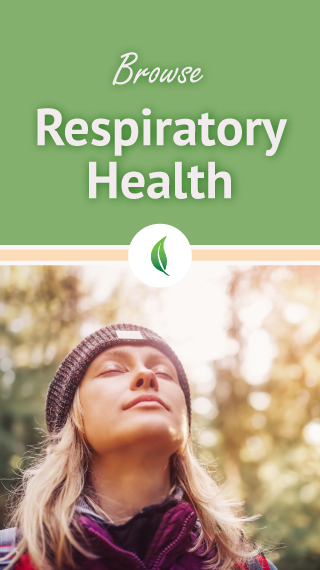
Vitamins and Other Lifestyle Changes for People with Respiratory Concerns
March 20, 2023
The respiratory system is your body’s powerhouse. This system is responsible for vital and life-sustaining activities such as breathing and providing your cells with the energy they need to function. This network of muscle, organs, and tissues—which include your lungs—also work together so you can talk and smell and protect your airways from irritants and harmful substances.
But toxic elements such as asbestos can get through this system’s defense layers. When this happens, tumors can grow and develop into cancer. Mesothelioma is a type of cancer that can result from asbestos exposure. However, you can prevent and manage this condition by connecting with health specialists at mesotheliomagroup.com.
In This Healthy Insight:
- How Vitamins and Your Lifestyle Impact Respiratory Health
- Factors That Weaken One’s Respiratory System
- Tips for Better Respiratory Health

Using air purifiers and adding greenery to your surroundings can improve the air around you. However, being more conscientious about feeding and treating your body can also help with having a healthy respiratory system. How essential are vitamins and a healthy lifestyle to your respiratory system? What factors can weaken this system, and what can you do to strengthen it?
Get a lowdown of the vitamins and lifestyle tips that will boost your respiratory health in our guide below.
How Vitamins and Your Lifestyle Impact Respiratory Health
A diet rich in multivitamins is one of the most effective ways of building up your immune system, which operates within your respiratory tract. Balanced meals can also reduce lung damage that may trigger diseases.
At the same time, a healthy lifestyle that includes physical exercise provides the body with oxygen for breaking down these nutrients into energy.
Vitamin Benefits
Vitamins fall under two general categories:
- Fat-soluble vitamins, including vitamins A, D, and E, are stored in cells and do not exit the body as quickly as water-soluble vitamins.
- Water-soluble vitamins, including vitamin C,
Vitamins A, C, and E may also contain antioxidants that counteract cell-damaging atoms called free radicals.

Healthy Lifestyle Benefits
Physical activity can work up your heart and lungs to effectively distribute oxygen throughout your body.
However, some exercises like deep breathing do not require much motion. Using your diaphragm and abdominal muscles and “belly breathing” trains your lungs to fill with air more efficiently.
Factors That Weaken One’s Respiratory System
Some substances or situations can make your respiratory system prone to irritation or disease. Some of these include:
- Cigarette smoking and vaping or using e-cigarettes
- Indoor pollutants such as sawdust, solvents, and other industrial chemicals
- Outdoor pollutants such as radon (from burnt coal and other fossil fuels), carbon monoxide from vehicles, and other smog sources
- Poor hand and oral hygiene
Tips for Better Respiratory Health
A healthy respiratory system results from a healthy lifestyle, including having a vitamin-fortified diet, regular exercise, and abandoning harmful habits.

Vitamin-Fortified Diet
Many vitamins that can strengthen your respiratory system come from what you eat. Consider this list of natural vitamin sources to boost your respiratory health:
- Vitamin A: Leafy green vegetables, carrots, sweet potatoes, butter, egg yolk, kidney, and liver
- Vitamin C: Leafy green vegetables, bell peppers, broccoli, oranges, lemons, tomatoes, strawberries, kiwi, and guava
- Vitamin D: Sunlight, fish, orange juice, fortified milk, yogurt, cheese, mackerel, salmon, tuna
- Vitamin E: Almonds, avocado, spinach
Special Considerations
Avoid sulfites and salicylates, which can trigger breathing difficulties for people with asthma or asthma-like symptoms.
You can find sulfites in many dried fruits, pickled food, bottled lemon or lime juice, alcohol (red wine), shrimp, and maraschino cherries. Meanwhile, coffee, tea, herb or spice mixes, and aspirin can include salicylates in their ingredients.
Regular Exercise
The Centers for Disease Control and Prevention (CDC) recommend 150 minutes of moderate-intensity physical activity weekly for adults. You can break it down into 30 minutes per day for five days.
Choose age-appropriate exercises that include aerobic and muscle-strengthening activities.
Abandon Harmful Habits
Find new activities to replace smoking, vaping, and other habits that will endanger your respiratory system. Smoking can cause COPD—emphysema and chronic bronchitis—and lung cancer.
Consult your doctor or connect with the American Lung Association when you are ready to quit the habit.



